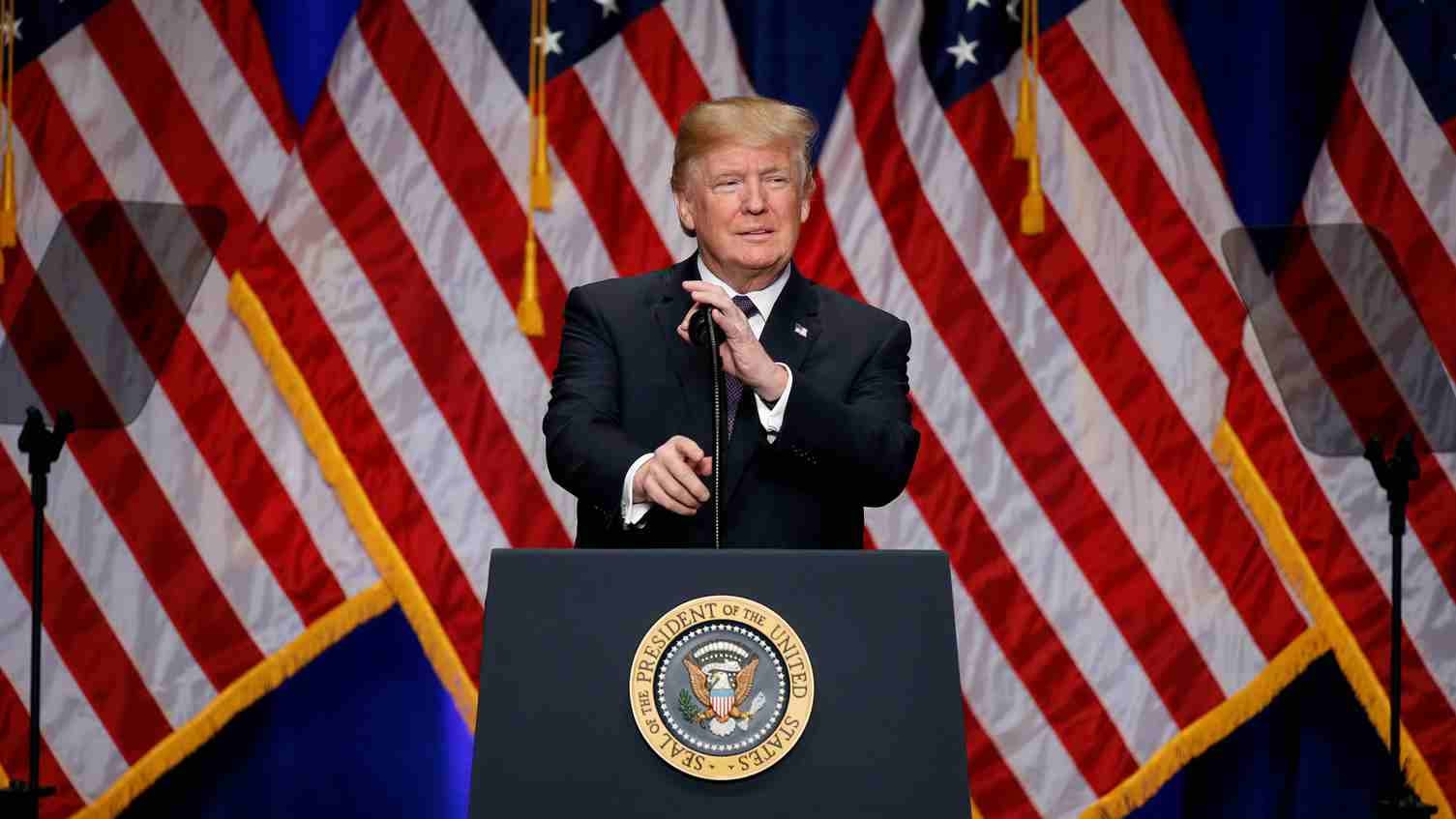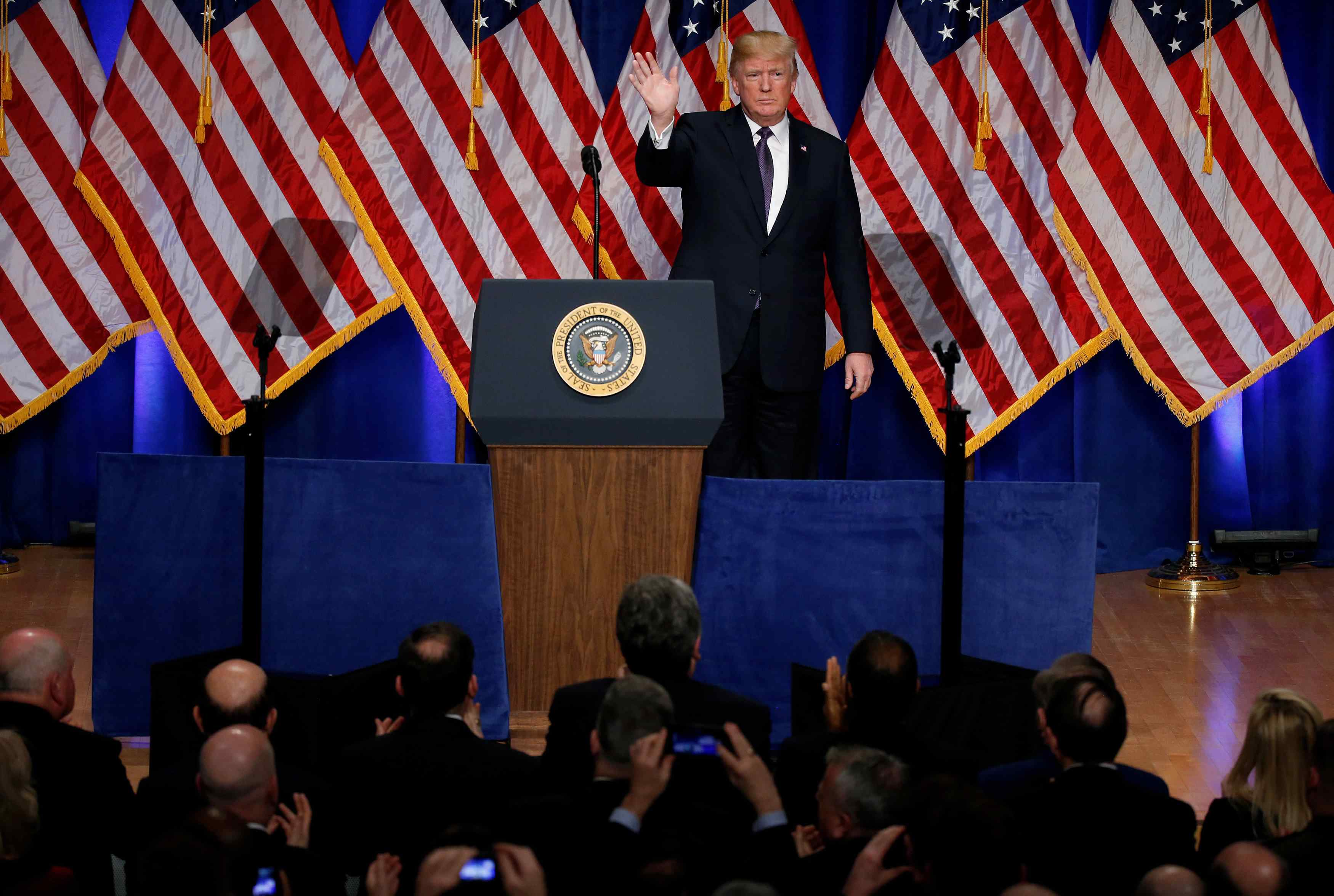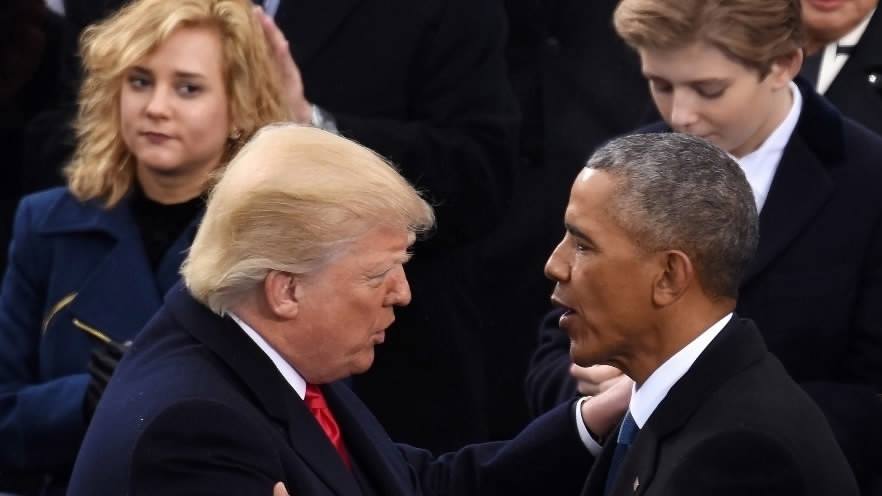
Opinions
16:06, 19-Dec-2017
Opinion: What does 'America First' mean for Trump?
Guest commentary by Laura Silvia Battaglia

Firstly, “America First” means protection of the homeland by having “stronger” borders.
Secondly, it means protection from economic threats and reestablishing the US’s military power in the world focusing on it having direct benefits at home.
On Monday, US President Donald Trump presented a blueprint for the National Security Strategy of the US. Some statements were expected, but during his speech instead of explaining the nature of any threats that the new strategy would seek to contain, Trump instead delivered a political campaign message in front of cabinet members and military officers, saying that "America is in the game and is going to win".
The meaning of the speech, practically speaking, for the relations between the US and China or Russia as well as with the DPRK and Iran, concerning a strategy builder as a defense to those threats, it's hard to say.

US President Donald Trump waves after delivering remarks regarding the
Administration's National Security Strategy at the Ronald Reagan Building and
International Trade Center in Washington DC, US December 18, 2017. /Reuters Photo
US President Donald Trump waves after delivering remarks regarding the Administration's National Security Strategy at the Ronald Reagan Building and International Trade Center in Washington DC, US December 18, 2017. /Reuters Photo
"China, Russia and other state and non-state actors recognize that the United States often views the world in binary terms, with states being either at peace or war when it is actually an arena of continuous competition," says the document.
The first step seems to be based on a strategy to fight Jihadi extremism as well as nuclear proliferation; the strategy also said that the time of "competition" is over: there’s no space for dialogue and the era of a new super-power rivalry has just started.
In the document Russia and China are mentioned as concrete economic-political threats against the US because they "are determined to make economies less free and less fair, to grow their militaries and to control information and data to repress their societies and expand their influence".
It would appear that Trump wants to push back China on trade and seems to suggest a Cold War as well as with Russia. This is putting, even more, distance between his strategy and the previous Obama Presidency strategy which was counting on cooperation and economic partnership with allies as long as they built on cooperation with US as well.

File photo taken on January 20, 2017, shows US President Donald Trump (L, front) is greeted by former US President Barack Obama after delivering his inaugural address during the presidential inauguration ceremony at the US Capitol in Washington DC, the United States. /Xinhua Photo
File photo taken on January 20, 2017, shows US President Donald Trump (L, front) is greeted by former US President Barack Obama after delivering his inaugural address during the presidential inauguration ceremony at the US Capitol in Washington DC, the United States. /Xinhua Photo
About China, while Barack Obama viewed Beijing as a potential partner against possible threats from the DPRK or Iran, in common security(ies) interests, Trump now defines China as a "revisionist" power, reflecting the administration’s worry that Beijing is rewriting the rules of post World War II for its own global economic interests and political ambitions of influence. For now, Trump speech is just a statement and doesn’t have the same power to inflame the world as he did in his recent statement, which recognized Jerusalem the capital of Israel.
While Trump may clump China and Russia together the reality is China, unlike Russia, is not even competing directly with the US and is definitely not involved in a scandal that may one day lead to Trump’s impeachment. China is essential, for now, to the US economy and is essential as well in deescalating tensions over the DPRK.
However, whatever the content of one speech it will take a lot more for Washington and Beijing to throw in the towel and turn their backs on years of mutual interests in sharing the position of global financial power.
(Laura Silvia Battaglia is a Veteran journalist, Opinion writer Roving around the world, mostly contribute to the US and UK publications. The article reflects the author’s opinion, and not necessarily the views of CGTN.)

SITEMAP
Copyright © 2018 CGTN. Beijing ICP prepared NO.16065310-3
Copyright © 2018 CGTN. Beijing ICP prepared NO.16065310-3